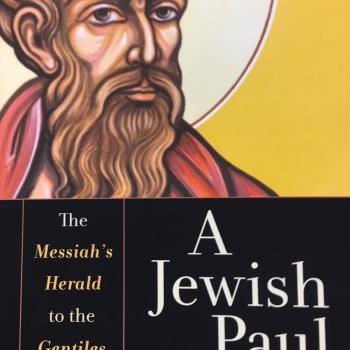 I never imagined writing about a theology on toilet paper, but then came COVID-19! The scarcity of this product in our stores is all too noticeable these days. How is it that the Coronavirus compels us to buy more toilet paper than we need, and what might the Bible say about this?
I never imagined writing about a theology on toilet paper, but then came COVID-19! The scarcity of this product in our stores is all too noticeable these days. How is it that the Coronavirus compels us to buy more toilet paper than we need, and what might the Bible say about this?
7 Reasons Why We Stock up on Toilet Paper
There are at least seven reasons why we currently have trouble finding toilet paper and want to stock up on it ourselves:
1. Security: Stockpiling on toilet paper provides us with a sense of security and control over an uncertain future. It happens to be a household item that we use every day. To be without it screams, “Crisis!”
2. Luxury: Toilet paper is a symbol of luxury, according to Francis Mao in the BBC News.* It sets us apart from animals and the archaic past. It reflects prosperity and the American dream.
3. Cleanliness: Toilet paper is also sign of cleanliness. We fear that life would be unsanitary, disgusting, and downright smelly without it.
4. Versatility: Toilet paper can substitute for napkins, tissue, paper towels, even face-masks, and usually at less cost. If you run out of any of these items, toilet paper can come to the rescue.
5. Visibility: Toilet paper happens to be a large item. We notice that other items are missing in our stores—hand sanitizers, disinfectants, face-masks, and certain canned goods, to name a few. Yet toilet paper is more noticeable than these since it takes up a lot more shelves in our supermarkets. Because its absence is more noticeable, its demand becomes greater.
6. Herd Instinct: Related to its great size, we can spot toilet paper more easily in the shopping carts of other people. This could sometimes trigger us to be convinced that “I got to have it, too!” Or “I can’t be without it!”
7. Irreplaceability. Toilet paper is thought to be indispensable. If you run out of beans, you could get rice. If you run out of rice, you could get noodles, or bread, or some other type of food. There are always other options for the food, but not for these everyday paper rolls.
What does the Bible have to say about all this?
Although toilet paper did not exist in biblical times, there are some embarrassing passages that speak about our natural urges relevant to it, but these texts have little to say about the current crisis.** We are better served reflecting on practical biblical insights on the seven reasons we just covered.
Of the seven, I question whether toilet paper is really irreplaceable (#7). Maybe I’m older than I look—or I lived in less-desirable neighborhoods than most—but I do recall that newspapers and paper towels were the “go to” substitutes in case you ran out of rolls. People in the past and present have used other paper products, water, towels, leaves, sponges, and other substitutes. Of course, the use of such things infringes on our western sensibilities, which is another way of saying we value luxury (#2). When it comes to survival, however, food, water, and shelter are far more important than toilet paper.
If Jesus has called us to love our neighbors as ourselves (Matthew 22:36–40), what does that look like in relation to the possible surplus of paper rolls in our home if our literal neighbor ran short on them? Would you be willing to share your “luxury”?
Cleanliness and Versatility
The most noble reasons to have an abundance of toilet paper, I think, have to do with cleanliness and versatility (#3 and #4, respectively).
Related to cleanliness in biblical times, we find Moses’s law laying down procedures for the proper disposal of poop (Deuteronomy 23:13–14). When sacrificing and taking out the entrails of animals, which frequently includes poop, Hebrew priests followed strict purity regulations related to washing themselves (e.g., Leviticus 16:27–28). And even though the Apostle Paul does away with the “works of the law” for his gentile churches in the New Testament, somehow I don’t think he would be encouraging unsanitary practices. The bottom line here is what medical authorities are telling us everyday regarding the current epidemic—wash your hands!
Regarding versatility, resourcefulness is commendable, as wisdom discourse teaches us. For example, in Proverbs we discover that the wise planner is to be commended: “The prudent sees danger and hides himself, but the simple go on and suffer for it” (Proverbs 22:3 ESV). The wise woman is praised for being resourceful with her products, and she laughs at the time to come (Proverbs 31:10-31). This same women is generous when it comes to giving to those in need (31:20), so she is obviously not hoarding up items for herself.
 Fear and Greed
Fear and Greed
Regarding security and herd instinct (#1 and #6, respectively), we must be careful that fear and greed do not motivate our purchases during the current crisis. Such motivations may reflect the attitude of the Rich Fool in Jesus’s parable from Luke 12:15–21. The parable begins with Jesus warning his auditors against coveting. He also affirms that life does not consist in the abundance of what one possesses. In the parable, the foolish man builds bigger storehouses with his money so that he could stock up on more grain and goods. Then suddenly he dies, unable to enjoy his resources. The parable concludes with the words, “So is the one who stores up treasure for himself and is not rich toward God.”
As we shop for our wants and necessities during the current crisis, it is important for us to discern the fine line that may be drawn between preparing and over-preparing. The former is based on wisdom; the latter may be based on fear or greed.
Important Questions
Here are perhaps some important questions we might want to ask ourselves about our motivations for buying what we do during the Coronavirus pandemic:
Do I live in a way that agrees with the exhortation to Timothy that God has not given us a spirit of fear, but of power, love, and sober thinking (2 Tim 1:7)? Have I learned to cast all my worries on God, for He cares me (1 Pet 5:7)? Instead of being anxious about the scarcity of items, am I regularly making my prayer requests known to God (Phil 4:6)? Since God already knows about my daily necessities, even before I ask Him, could I trust Him enough to make it my priority to seek His kingdom and righteousness (Matt 6:25-34)?
Yes, times are hard, and toilet paper can be scarce. But it is precisely at times like these that God is often in the business of building up our faith and character. As we face uncertain times ahead, we can learn to act wisely, trust in the Lord, and not be afraid.
End Notes
*Francis Mao, “Coronavirus panic: Why are people stockpiling toilet paper?” BBC News, Sydney (5/4/20).
**Some humorous biblical examples are as follows: David, being persecuted by King Saul, cuts off part of Saul’s robe when the king was relieving himself in a cave (1 Samuel 24:3). Servants of the slain tyrant Eglon, smelling his entrails, wait outside of his chamber thinking he is having a bowel movement (Judges 3:24). Elijah mocks the prophets of Baal as they call on their god to consume their offering, and in certain versions, his derision includes that their deity is sitting on the toilet (see 1 Kings 18:27 in the Living Bible or English Standard Version). For more sobering passages about poop, see: e.g., 2 Kings 9:37; Psalm 83:10; Isaiah 36:12; Jeremiah 8:2; Ezekiel 4:12-15; Matthew 15:17; Luke 14:35; Philippians 3:8.
Pictures: Paper Sold out via Pixabay.com/Toilet Paper Role Bathroom via Pixabay.com/Toilet Paper Stack-Hygiene via Pixabay.com
Other Informative links regarding the scarcity of toilet paper:
James Felton, “What are People Panic Buying Toilet Paper?” (3/13/20); IFLScience!
“The Real Reason Why People are Buying a Bunch of Toilet Paper”













